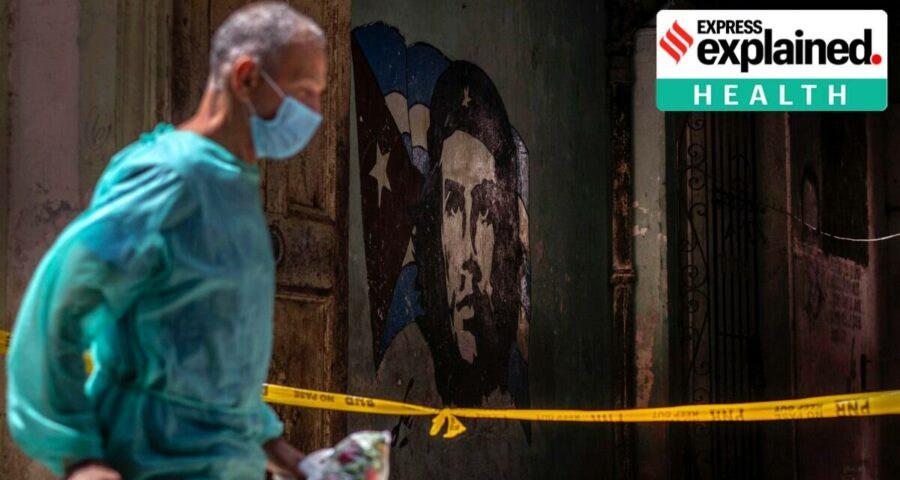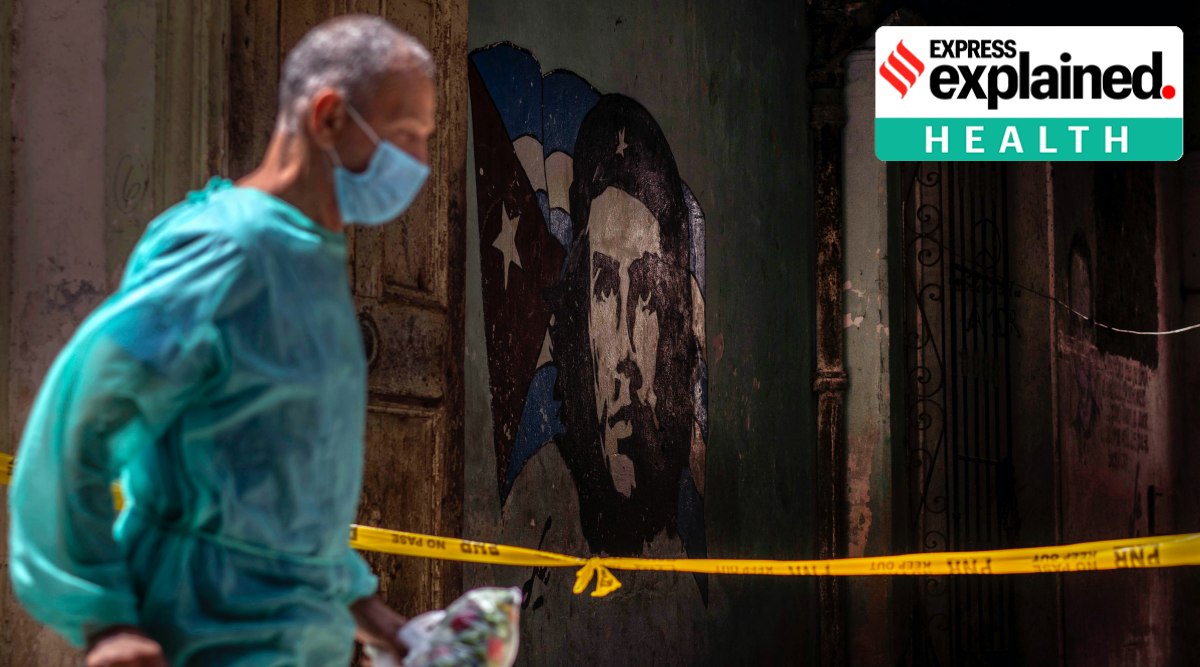Apart from protecting its own population from the deadly disease, an effective Covid vaccine will also help Cuba revive its economy, which was crippled by the coronavirus pandemic and a drastic drop in international tourism over the past year.
Despite grappling with severe shortages in food and medicines amid the debilitating coronavirus pandemic, the Communist-run island nation of Cuba plans to develop and export its own Covid-19 vaccines by the end of the year. So far, the country has announced five coronavirus vaccine candidates, two of which are in their final phase 3 trials.
Given its history of vaccine development and a surprisingly impressive biotech sector, Cuba’s dreams to combat the pandemic using its homegrown jabs may not be that far fetched. Last month, researchers at the Finlay Institute in Havana announced that their Soberana 2 vaccine appears to be highly effective and is entering the final stage of clinical trials. If the trials are successful, Cuba will become the only Latin American country to develop its own coronavirus vaccine.
Apart from protecting its own population from the deadly disease, an effective Covid vaccine will also help Cuba revive its economy, which was crippled by the coronavirus pandemic and a drastic drop in international tourism over the past year.
Cuba’s Covid-19 vaccine programme
At present, Cuba has a total of five vaccine candidates in the works, with names that have a bit of a political message in them. Two of the vaccines are called ‘Soberana’ — the Spanish word for sovereignty. Another has been named ‘Abdala’, after a poem written by the hero of the Cuban revolution Jose Marti. The fifth vaccine, ‘Mambisa’, refers to the Cuban guerrillas who fought for freedom against the Spanish, and is administered as a nasal spray. Two of these — Soberana 2 and Abdala — are in their final phase three trials.
The final phase of clinical trials for Soberana 2 began last month. Over 44,000 people are participating in the last test of the vaccine, following which it will be sent to the country’s regulatory agency, the Center for State Control of Medicines, Equipment and Medical Devices (CECMED) for approval.
“This is the first Cuban and Latin American vaccine to advance to phase 3 trials,” Dagmar Garcia Rivera, the research director at the Finlay Institute said at a news conference last month. Cuban authorities have said that they are confident the country will have enough doses of the Soberana 2 vaccine to inoculate the whole country by the end of summer.
Trials of the vaccine are also being carried out in allied countries, including Iran and Venezuela. Interestingly, Cuba is among the few countries yet to start any vaccination of its population against the present pandemic.
How do the Soberana 2 and Abdala vaccines work?
Both the Soberana 2 and Abdala vaccines are conventional conjugate vaccines, which means that a part of the coronavirus spike protein is fused with a carrier molecule in order to boost both efficacy and stability.
Cuban researchers are still ascertaining whether two doses, administered two weeks apart without any special refrigeration requirements, will be adequate to effectively immunise individuals. They will only be able to establish whether two or three doses of the vaccine are required once they complete phase three trials.
According to Cuban officials, the vaccines will both be cheap to buy and easy to store. They will last at room temperature for several weeks and can be stored long term at temperatures as high as 46.4 degrees, making it a feasible option for developing nations struggling to purchase vaccines from multinational pharmaceutical corporations in the West.
Eduaro Martinez, president of BioCubaFarma, the state pharmaceutical conglomerate responsible for vaccine development, said thousands of people have already been administered the two vaccines, which showed a “potent immunological response” without any major side effects.
The results from the Soberana-2 clinical trial are expected in May. Meanwhile, the Abdala vaccine has already been given to 1,24,000 health care workers in the country.
Have other countries expressed interest in Cuba’s vaccines?
Yes, Cuban officials claimed that some countries have approached the government to purchase over 100 million annual doses of some of the vaccines. Several poorer countries, that can’t afford vaccines produced in the United States and other Western countries, are turning to Cuba for its more affordable vaccines.
Mexico and Argentina have expressed interest in Cuba’s vaccine. Meanwhile, Venezuela will produce Abdala vaccines, its government announced earlier this month.
For Cuba, developing and exporting its own vaccines is not just about public health. It is also a way for it to show its force in the biotech sector, despite it being a small communist country that has long faced sanctions from the United States. This could be why Cuba chose not to buy Covid vaccines from multinational pharmaceutical companies or sign up for the World Health Organisation’s global COVAX vaccine sharing initiative.
Cuba’s vaccine track record
Cut off from most of the world, Cuba’s former leader Fidel Castro vowed to build a powerful health sector in the country so that it could produce a majority of its own vaccines and medications. He invested greatly in biotechnology and immunology. Today, Cuba is one of a few developing nations with the capabilities to produce and export their own vaccines.
Despite its authoritarian, one-party system and an administration known to be repressive, early investments in healthcare have helped build an oddly sophisticated and cutting edge biotechnology sector in the small developing nation.
Cuba is known for a number of medical breakthroughs — including the first vaccine to treat meningitis B and the only effective treatment for serious diabetic ulcers. During the pandemic, too, Cuba snapped into action, producing as many as 13 different medicines to treat Covid symptoms. Cuba is also known for exporting vaccines to treat Dengue fever to over 30 different nations.
How is the Covid situation in Cuba?
In 2020, when the coronavirus pandemic began tightening its grip in countries around the world, Cuba was able to keep its Covid numbers exceptionally low by enforcing a series of lockdowns and other restrictions. However, this year, the island nation witnessed a significant surge in cases. Since late March, Cuba has been recording approximately 1,000 cases per day.
Meanwhile, the pandemic has ravaged the country’s economy and left people lining up for basic necessities, including food, medicines and other essential supplies. Its economy shrank 11 percent in 2020, according to multiple reports.
Source: Read Full Article


